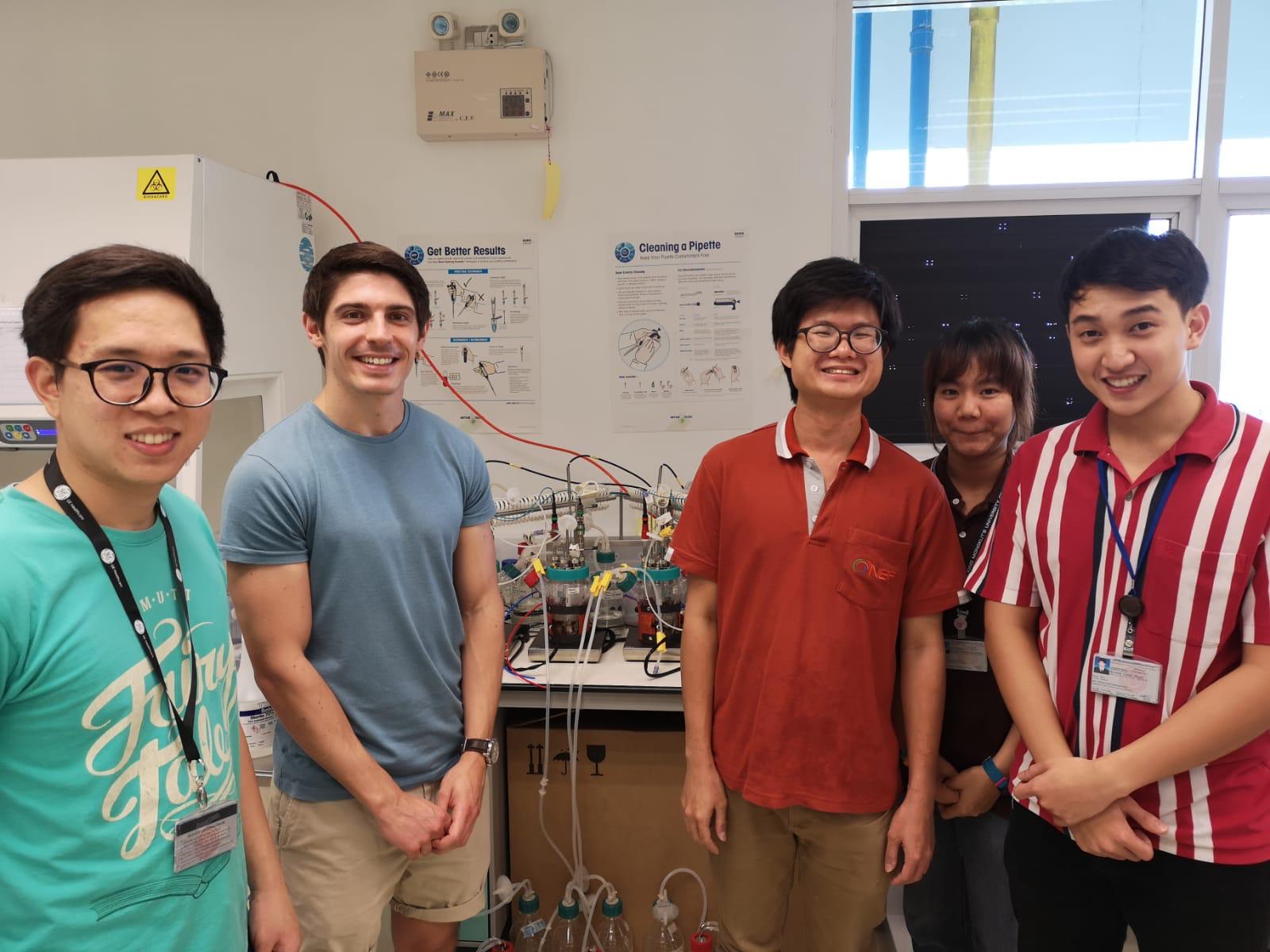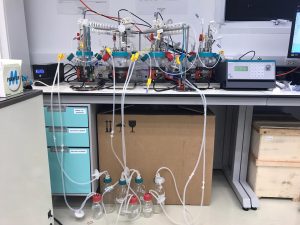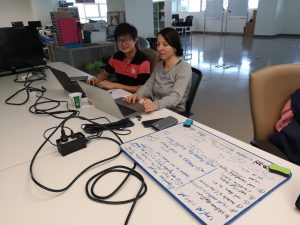
Research visits between partners are a key element required for the success of our project. Such visits, from Thailand to the UK, or vice-versa, allow the exchange of ideas and transfer of technologies that underpin our research. Importantly, they also offer the early career researchers in our team valuable training, and the opportunities to experience
different research environments and build an international network of colleagues.
 After successful visits from the Thai research assistants based at the National Biopharmaceutical Facility (NBF) in Bangkok to UCL, Imperial College and Kent last summer, it was the turn of UK-based postdocs to visit Thailand. This spring, James Budge, postdoctoral researcher at the University of Kent, spent time at NBF working with the Thai team to establish small-scale growth of Chinese Hamster Ovary cells expressing monoclonal antibodies that were developed at Kent. Establishing the conditions for growth that allow maximum production of the protein drug in small scale culture is an important first step in developing a larger scale process for production. In July, Anja Krueger, postdoctoral researcher at Imperial College, travelled to NBF to spend a week working with the Thai researchers. During her visit, the group focused on the transfer of knowledge, protocols and systems for the analysis of protein drugs and vaccines using mass spectrometry and other analytical techniques. Establishment of a robust pipeline for the analysis of the biopharmaceuticals and animal vaccines produced by our consortium is extremely important in ensuring that the molecules we make are fit for regulatory approval.
After successful visits from the Thai research assistants based at the National Biopharmaceutical Facility (NBF) in Bangkok to UCL, Imperial College and Kent last summer, it was the turn of UK-based postdocs to visit Thailand. This spring, James Budge, postdoctoral researcher at the University of Kent, spent time at NBF working with the Thai team to establish small-scale growth of Chinese Hamster Ovary cells expressing monoclonal antibodies that were developed at Kent. Establishing the conditions for growth that allow maximum production of the protein drug in small scale culture is an important first step in developing a larger scale process for production. In July, Anja Krueger, postdoctoral researcher at Imperial College, travelled to NBF to spend a week working with the Thai researchers. During her visit, the group focused on the transfer of knowledge, protocols and systems for the analysis of protein drugs and vaccines using mass spectrometry and other analytical techniques. Establishment of a robust pipeline for the analysis of the biopharmaceuticals and animal vaccines produced by our consortium is extremely important in ensuring that the molecules we make are fit for regulatory approval.

The research visits carried out so far have certainly shown that it’s good to talk (in person!), so the exchange of knowledge and ideas through research visits will continue as we progress through the project, with more visits by Thai researchers to the UK planned for autumn 2019.